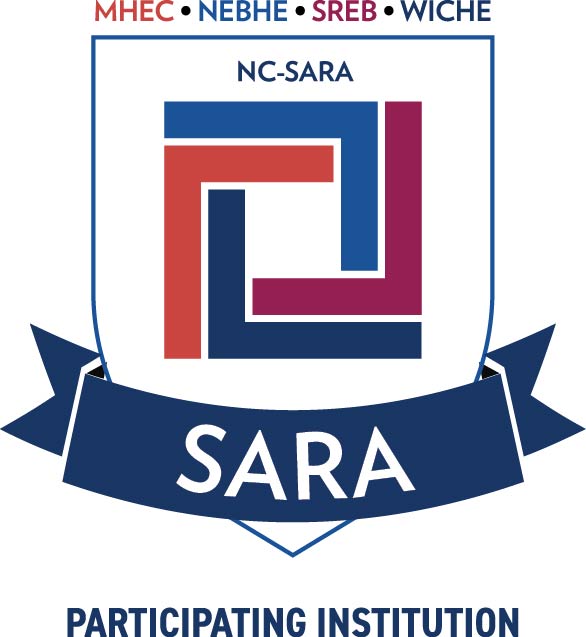Central Lakes College offers online courses and programs to a wide array of learners, across the region and our nation, and is accredited by the Higher Learning Commission.
CLC is a member of NC-SARA (National Council for State Authorization Reciprocity Agreements), which means we share a reciprocity agreement with all states who are part of the NC-SARA group. The State Authorization Reciprocity Agreement is an agreement among member states, districts and territories that establishes comparable national standards for interstate offering of postsecondary distance education courses and programs. It is intended to make it easier for students to take online courses offered by postsecondary institutions based in another state. SARA is overseen by a National Council and administered by four regional education compacts.
To find out if you live in a state that has joined this consortium, view the NC-SARA map. If you don’t see your state listed as NC-SARA approved, fear not. More states are coming on board quickly, and soon we anticipate that most states will be participating.
 Central Lakes College has been approved by the State of Minnesota to participate in the National Council for State Authorization Reciprocity Agreements. NC-SARA is a voluntary, regional approach to state oversight of postsecondary distance education.
Central Lakes College has been approved by the State of Minnesota to participate in the National Council for State Authorization Reciprocity Agreements. NC-SARA is a voluntary, regional approach to state oversight of postsecondary distance education.
Student Consumer Complaint Process
Pursuant to the United States Department of Education’s Program Integrity Rule, institutions providing online education are required to provide all prospective and current students contact information of the state agency or agencies that handle complaints against postsecondary education institutions offering distance learning within that state.
We encourage you to seek resolution to any concerns by discussing them informally with a staff member at the College. If a complaint cannot be handled informally, CLC students are encouraged to use our College’s complaint process, outlined in the Student Concern Process.
If a complaint cannot be resolved at the College level, you may contact the Minnesota Office of Higher Education if you are a distance education student that resides out of state and in an NC-SARA state. Otherwise, if you do not meet the previously mentioned criterion, you may contact your local state agency (pdf) for further information.
Licensure Disclosures
Below are a list of CLC programs that customarily lead to licensure. Please click on the link of the program to go to the program page, which will have a link to the initial licensure document. This document will indicate one of the three options: the program does meet licensure, the program does not meet licensure, or a determination cannot be made as to whether the program leads to licensure. For these purposes, states include the District of Columbia and the US protectorates, as defined in 34 CFR 668.43 (a) (5) (v).
